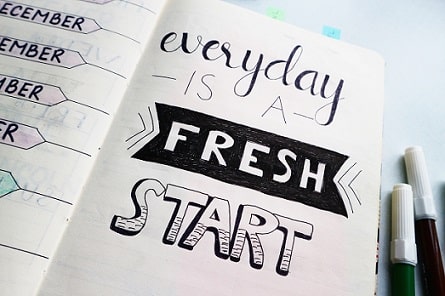How to Deal with a Bipolar Employee – 10 Tips
Managing employees always comes with its challenges. However, dealing with a bipolar employee can be even more difficult. Employees with bipolar disorder suffer from a condition characterized by mood swings.
- As an employer: you might be scratching your head trying to figure out how to handle a bipolar employee who switches from extremely good moods to exceptionally bad ones. Having an understanding of the condition puts you in a better position to deal with a bipolar person at work.
- As an employee: you might be more interested to know how to work with a bipolar coworker.
The following are some of the challenges and characteristics which bipolar employees face:
- Difficulty managing stress
- Struggle to work long hours without breaks
- Difficulty maintaining concentration due to distractions
- High manic moods
- Low depressive moods
To make your life easier we listed down 10 tips on how to deal with a bipolar employee and utilize the strengths which these employees bring to the workplace.
Does your company provide equal employment opportunities to all employees and applicants? Start publishing your vacant jobs for people with disabilities on our platform. Start contributing now to a fairer workplace.
1. Get informed
To learn how to handle a bipolar employee you first need to understand their situation. Get informed about the type of bipolar disorder your employee has. You can find plenty of online resources to provide you with information.
Learn about what types of behaviors to expect and how to approach different scenarios.
That way you can be prepared if your employee has an episode at work. Being well informed will also give you confidence that you can handle a bipolar employee and prevent disruption at work.
2. Be flexible

It’s important to be open and flexible with a bipolar employee. Have an open discussion and ask what they need. You can analyze whether the employee is fulfilling his or her role and completing the tasks assigned.
Accommodating your employee doesn’t mean that it will result in low performance at work.
It can actually improve the atmosphere, and the professional relationship between the bipolar employee and the company. When it comes to dealing with a bipolar employee at work, showing that you are flexible can work wonders.
If the requests by the employee are reasonable, accommodating them can increase their productivity and job performance. Be mindful and keep in mind that irregular work schedules and shift work can disrupt everyone’s mood, let alone an employee with bipolar disorder.
3. Offer encouragement and be optimistic

Being optimistic and staying positive is important when it comes to handling a bipolar employee.
Offer broad encouragement and show appreciation to good work and disciplined behavior.
People with bipolar disorder alternate between extremely good moods and extremely low moods.
If you notice that your bipolar employee is showing signs of depression, staying optimistic and encouraging them can provide them with support and uplift them.
Signs of depression involve:
- missing work ;
- showing up late at work ;
- low productivity ;
- low performance ;
- and mood swings.
Although you might want to implement disciplinary measures, these might cause more issues when it comes to dealing with bipolar employees.
Try being supportive and understanding rather than being rigid. During these periods, it’s crucial that you offer your support and see whether you can do some adaptations at work to help the employee.
4. Monitor employee progression

As an employer, being compassionate with employees is essential. However, you need to find balance between supporting the employees and ensuring optimal performance at work.
When you are dealing with a bipolar person at work, you still need to monitor performance and progression. Observe how your employee works with others and whether they are able to be productive. If an area of concern arises, and you feel that you need to address it, don’t be intimidated.
Set up a meeting or ask your employee to have a casual chat. Make sure that the meeting is personal so you don’t confront the employee in front of the whole team. Public confrontation can make them feel ashamed and trigger symptoms of depression.
Even though you want to be supportive and compassionate when dealing with a bipolar employee, you still have the responsibility to manage your employee. If a problem keeps recurring, confront it directly with your employee and discuss how you can resolve it.
5. Set goals
Setting clear goals and clarifying the purpose of assigned projects is highly recommended when dealing with a bipolar person at work. This prevents them from changing the scope of the project or creating unrealistic goals.
It also helps bipolar employees work better with their team and stick to their objectives. If it comes to your attention that the employee is changing the objectives or goals, restate the goal and remind them what you’ve already agreed on.
6. Offer promotions fairly

When it comes to offering promotions, it’s important to be fair and objective. Employees with bipolar disorder usually excel in creativity and they bring a lot of energy to the table.
Promotions should be offered fairly based on skill, performance and results, regardless of mental disorders.
If your top employee is a person with bipolar, don’t hesitate to promote them because of speculative fear of what might happen. Avoiding promoting an employee with mental illness is unjust.
Moreover, offering a promotion to a bipolar employee who worked hard for it, encourages the employee and can motivate them to perform better.
Unless you have evidence that your bipolar employee will not successfully fulfill the role, you don’t have a good enough reason to offer the promotion to someone else.
7. Offer one to one catch up meeting
Showing that you are there for your bipolar employee helps you build a good rapport. If your employee wants to talk about it, let them know that you are there to listen. This doesn’t mean that you should act like their therapist.
However, organizing one-to-one and frequent catch-up meetings can help you stay updated with the employee’s progression. Having an open and honest conversation can help you anticipate and prevent work disruption. During these one-to-one meetings you can ask if they need anything and if they are feeling happy at work.
8. Be mindful of your discourse
If you have to deal with a bipolar person at work, it’s important to be mindful of the kinds of words you use.
Some words might trigger an undesired response from the bipolar employee. So when you’re speaking with your employee make sure that you find the right words to express yourself.
For example:
| What Not to Say | Try Instead |
| “Is your health affecting your job performance?” | “How can we support you for better performance at work?” |
| “You seem to be low and depressed.” | “Are you feeling okay? You seem like you’re not your usual self” |
| “Stop it and snap out of it.” | “Would you like to talk about it?” |
| “Stay positive.” | “You can always ask for support.” |
| “I know how you are feeling” | “It’s difficult for me to fully understand what you’re going through but I can see that it’s distressing for you. How can I help?” |
9. Stay calm
If a bipolar employee says something offensive or inappropriate, the best is to stay calm instead of being reactive. Let them vent out but calmly assert the boundaries as required in the workplace.
Remaining calm is crucial at this point as getting angry will only cause more drama and the situation might get out of hand. Showing them support during these outbursts helps them calm down as they feel like you are empathizing with them.
10. Be empathic
Empathizing with bipolar employees is crucial when it comes to dealing with a bipolar person at work. Living with this mental health issue is not easy so they can use all the support they need.
Showing them that you are empathizing with what they are going through can help them feel supported.
Otherwise, they can end up feeling isolated during their low depressive mood. Being empathic can help you come up with solutions and get creative when it comes to resolving problems that might arise at work.
Final thoughts on how to handle a bipolar employee
Employees with bipolar disorder can sometimes be disciplinary nightmares. Learning about this mental health issue will help you find the balance between offering support and implementing discipline at work.
Education is key when it comes to handling bipolar employees. You will feel more confident knowing the right things to say, and how to face challenging situations which might come up at your workplace. Keep these 10 tips in mind, and you’ll definitely find it easier to handle your bipolar employees. Note the following list of the best jobs for bipolar people.
On the other hand, note the following positions that are considered as the worst jobs for people with bipolar disorder.
FAQ
Dealing with a bipolar employee can be challenging.
Keep these tips in mind to help you deal with a bipolar person at work:
-Get informed
-Be flexible
-Offer encouragement
-Monitor progression
-Set goals
-Promote fairly
-Catch up meetings
-Be mindful of discourse
-Stay calm
-Be empathic
Related articles:
Bipolar Disorder Employment Statistics
Inclusive Behaviors in The Workplace | 15 Ways to Promote it
Fostering Inclusion : Work Environment | 12 Ways to do it
Benefits of diversity and inclusion in the workplace
DEI Training & Topics: What is it & Implementing Strategies
Diversity Management: What is it and Concept
Diversity and Inclusion Topics for Discussion: 9 Talking Points


leave your comment